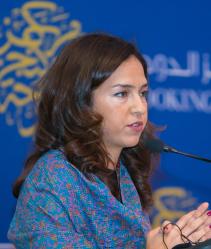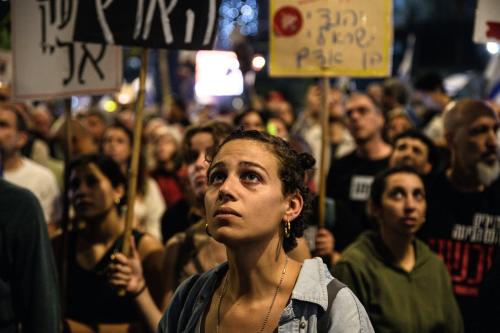Content from the Brookings Doha Center is now archived. In September 2021, after 14 years of impactful partnership, Brookings and the Brookings Doha Center announced that they were ending their affiliation. The Brookings Doha Center is now the Middle East Council on Global Affairs, a separate public policy institution based in Qatar.
Noha Aboueldahab’s new book, “Transitional Justice and the Prosecution of Political Leaders in the Arab Region: A comparative study of Egypt, Libya, Tunisia and Yemen,” (Hart: 2017) calls for a re-thinking of transitional justice theory and practice based on original findings from almost 50 in-depth interviews across four countries.
Through a comparative case study of Egypt, Libya, Tunisia and Yemen, Aboueldahab argues that transitional justice in the Arab region presents the strongest challenge yet to the transitional justice paradigm. This paradigm is built on the underlying assumption that transitions constitute a shift from non-liberal to liberal democratic regimes, where often legal measures are taken to address atrocities committed during the prior regime. The book is guided by two principal questions: First, what trigger and driving factors led to the decision of whether or not to prosecute former political leaders? And second, what shaping factors affected the content and extent of decisions regarding prosecution? In answering these questions, the book enhances our understanding of how transitional justice is pursued by different actors in varied contexts. In doing so, it challenges the predominant understanding that transitional justice uniformly occurs in liberalizing contexts.
The prosecution of political leaders took center stage in the pursuit of transitional justice following the Arab Spring. We recently sat down to discuss how various actors battle for competing visions of transitional justice within the context of resurgent authoritarianism and ongoing conflict in the Arab region. Watch the conversation below:




Commentary
Watch: Re-thinking transitional justice in the Arab world
November 6, 2017